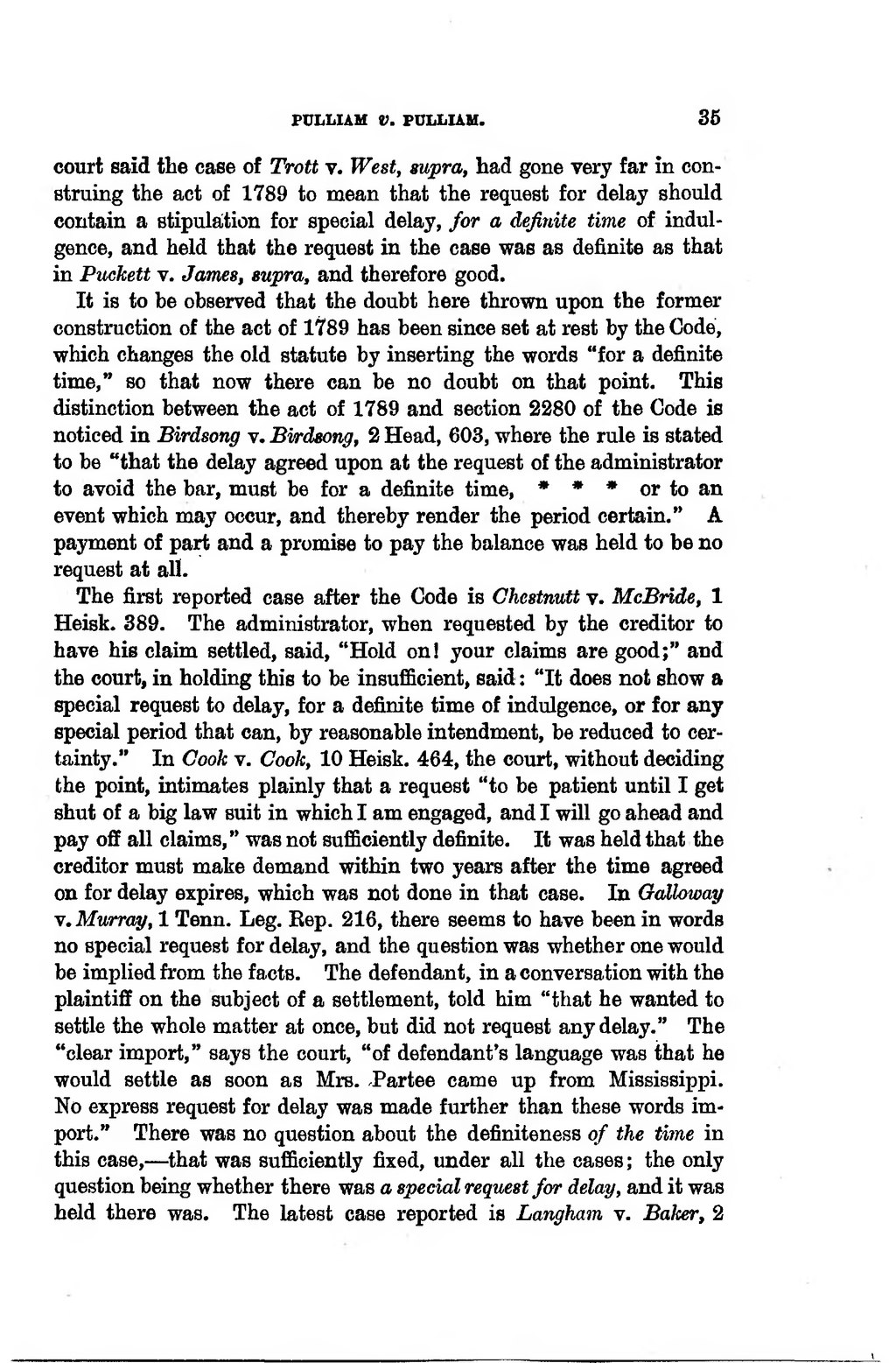PCLLIAH V. FDLLUH. 35 �court said the case of Trott v. West, supra, had gone very far in con- struing the aet of 1789 to mean that the request for delay should contain a stipulation for special delay, for a dejinite time of indul- gence, and held that the request in the case was as deonite as that in Puckett v. James, supra, and therefore good. �It is to be observed that the doubt here thrown upon the former construction of the act of 1789 has been since set at rest by the Code, which changes the old statute by inserting the words "for a definite time," so that now there can be no doubt on that point. This distinction between the act of 1789 and section 2280 of the Code is noticed in Birdsong v.Birdsong, 2Head, 603, where the rule is stated to be "that the delay agreed upon at the request of the administrator to avoid the bar, must be for a definite time, * * * or to an event which may oeour, and thereby render the period certain." A payment of part and a promise to pay the balance was held to be no request at all. �The first reported case after the Code is Ghcstnutt v. McBride, 1 Heisk. 389. The administrator, when requested by the crediter to have his claim settled, said, "Hold on! your claims are good;" and the court, in holding this to be insufficient, said : "It does not show a special request to delay, for a definite time of indulgence, or for any special period that can, by reasonable intendment, be reduced to cer- tainty." In Cook v. Cook, 10 Heisk. 464, the court, without deciding the point, intimates plainly that a request "to be patient until I get shut of a big law suit in which I am engaged, and I will go ahead and pay ofif all claims," was not sufficiently definite. It was held that the creditor must make demand within two years after the time agreed on for delay expires, which was not done in that case. In Gailoway v.Murray, 1 Tenn. Leg. Eep. 216, there seems to have been in words no special request for delay, and the question was whether one would be implied from the f acts. The defendant, in a conversation with the plaintiflf on the subject of a settlement, told him "that he wanted to settle the whole matter at once, but did not request any delay." The "clear import," says the court, "of defendant's language was that he would settle as soon as Mrs. Partee came up from Mississippi. No express request for delay was made further than these words im- port." There was no question about the definiteness of the time in this case, — that was sufficiently fixed, under all the cases ; the only question being whether there was a special request for delay, and it was held there was. The latest case reported is Langham v. Baker, 2 ��� �
